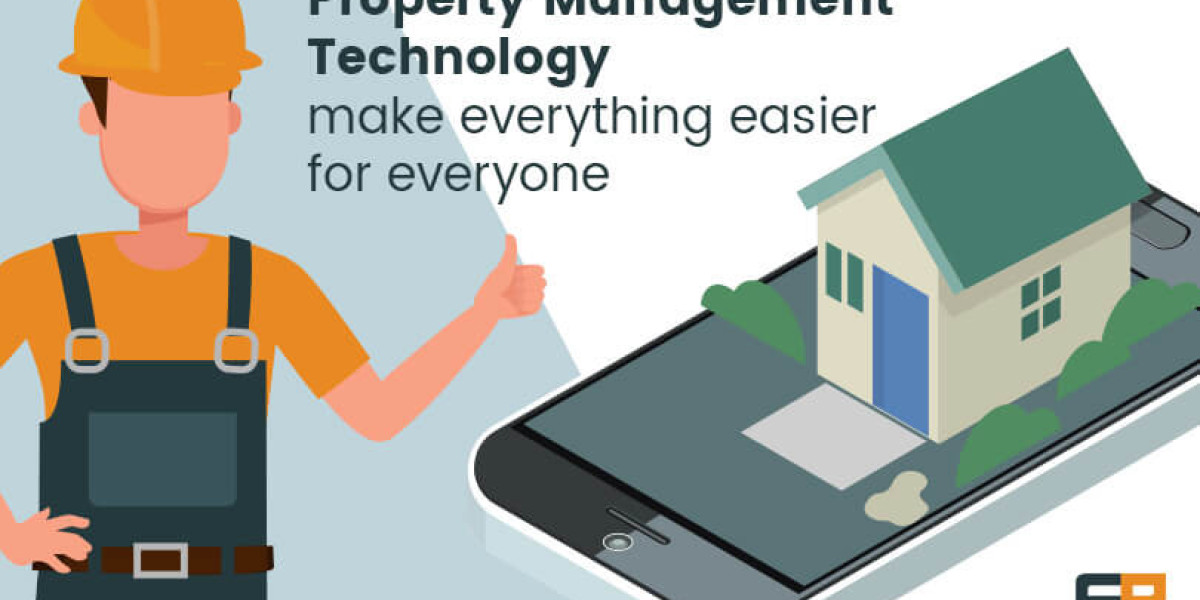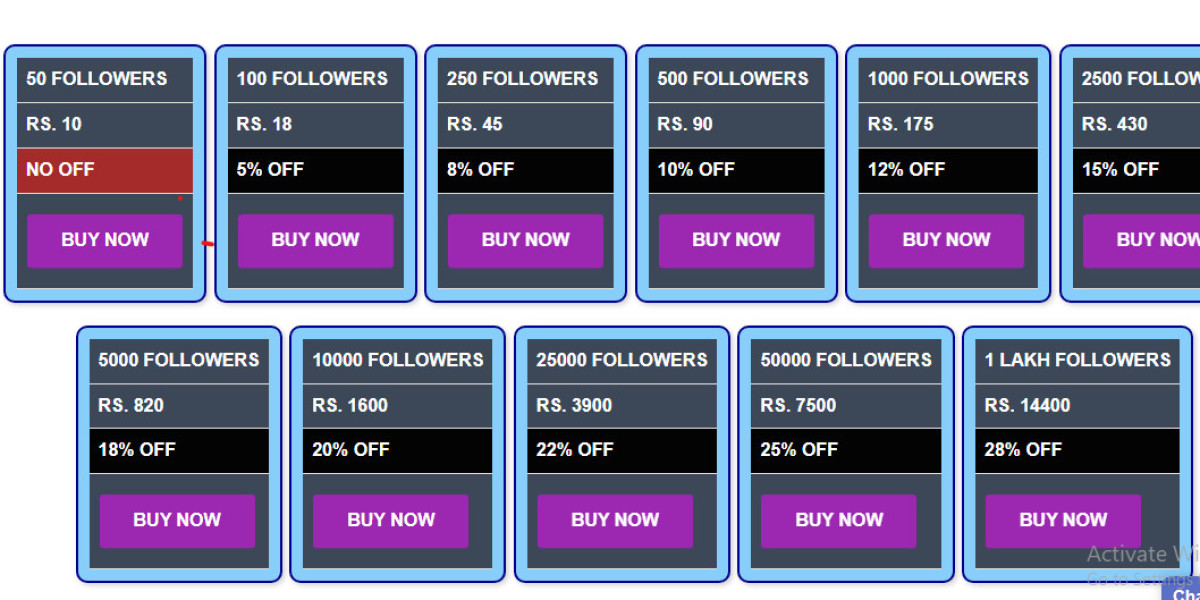Currently, technology has expanded into all spheres of life, including industries. We are surrounded by technology, from news updates to online shopping. Similarly, technology influences and affects the real estate industry.
The property and real estate industries have been slow to adopt modern technologies and remain largely traditional. However, this is changing as the industry undergoes massive digital transformation. As one of the last industries to adopt digitalization, the real estate industry is actively compensating by adopting the most popular property management technology trends.
This industry is currently experiencing its best times due to the continued emergence of financial investments, new models, and the functions of real estate platforms. Let’s take a look at the most prominent emerging technologies that are likely to shape the future of property management.
Enjoy Cutting-edge Property Management Technology with Field Promax Property Management Software. Sign Up Now.
Property Management Technology Trends: Industry Forecast
PropTech businesses and scaleups are leveraging emerging technologies to influence the entire industry. Throughout the property lifecycle, technology is being utilized to enhance the client-tenant experience and make informed decisions. Virtual reality (VR), augmented reality (AR), artificial intelligence (AI), property management software, and the internet of things (IoT) are the most significant technological developments of this generation. However, the application of these technologies in the real estate industry is still in its infancy, and tremendous innovation is occurring.
In the coming years, it is anticipated that the real estate industry will continue to experience rapid expansion. Consider the following real estate-related statistics:
According to a study by Grand View Research, Inc., the global real estate industry is anticipated to generate $4,263.7 billion by 2025.

As the global population increases, the demand for real estate to house public, private, and institutional services such as schools, hospitals, and shopping malls increases. This means that property management businesses will strive to achieve more in the coming years, and that is only possible when they employ digital technology in property management.
This, however, brings us to a crossroads—where do you begin? And how can you make real estate technologies work to your business’s advantage rather than become a resource drain? You will find the answers here. In this blog, we will talk about five property management technology trends that are projected to drive the industry into the future.
But before we go there, let’s talk a bit more about the technology itself to help you understand the trends and their impact on the industry.

Property Management Technology Trends: An Overview
Property management technology, or proptech, is defined as the usage of technology in real estate. Similar to how FinTech focuses on the application of technology in the financial sector, PropTech employs digital innovation to address the needs of the real estate industry. The goal of Proptech is to make everything easier for everyone involved in owning, leasing, renting, buying, selling, and managing properties.
For example, imagine a person who lives in a residential building and has access to an app that not only allows them to enter their apartment but also provides a mobile key card, food ordering, visitor registration, and much more. On the other hand, there are different software applications and mobile apps that property owners and managers can use to improve real estate management, repair, and maintenance tasks. This includes scheduling technicians, managing rent and ownership, performing predictive maintenance, hosting home visits by potential tenants, and more.
The number of such applications has increased over the past few years, but the trend is accelerating now. Proptech now incorporates more capabilities and features than ever before. Proptech shows no signs of slowing as more consumers and real estate agents adopt it to facilitate faster rentals and more convenient living.
Switch to Field Promax and Leverage the Latest Proptech Tools. Book Your Free Demo to learn more.
Clearly, the way property management was previously conducted is being massively disrupted by innovative technology. Here are the major property management technology trends to watch out for if you wish to join the real estate disruption bandwagon.
Emerging Property Management Technology Trends

The most prominent property management trend today is definitely AI and ML. The objective of AI research and development is to create intelligent machines capable of performing human-level tasks. This innovation’s purpose in the real estate industry is to automate and accelerate the entire process. It suggests that real estate agents now have quick access to information on all available properties.
Using artificial intelligence and machine learning, the collected data becomes actionable. This combination enables smarter decision-making through pattern recognition. In addition, the combination of artificial intelligence in real estate algorithms and a robust IoT device framework will facilitate high-quality property management, including improved control of energy, lighting, and security systems.
Using AI-powered personalization, for instance, an online real estate marketplace assists users in streamlining the home search process. The system determines consumer expectations and makes property recommendations accordingly. The search is no more a consequence of the search query than the entire system.

Virtual reality enhances the search and purchase of real estate by providing prospective buyers with a virtual tour of the property, which they can view remotely. With the implementation of virtual reality, real estate has reached the third stage of technological synthesis. The COVID era has furthered the acceptance of virtual reality.
3D virtual house and apartment tours are gaining popularity as a result of virtual reality (VR) technology that enables buyers to view their desired properties virtually, bringing them close to the actual viewing experience. It saves time and money and enables buyers to make informed decisions quickly.
With today’s advanced VR technology, buyers can see the property from the inside and feel details such as furniture placements and interior design ideas, which can assist them in making the right property purchase decision.

Many real estate transactions still require the participation of neutral parties, such as banks and brokers, as well as copious amounts of paper documentation. Increasing home prices also exert pressure on the real estate market. Due to the high prices, fewer individuals under 35 are willing to invest in real estate.
Emerging blockchain property technology is attempting to address these issues in a number of ways. On the blockchain, smart contracts are digitally signed agreements that contain information about real estate transactions.
It makes the process more transparent and secure by eliminating the need for paper documents and third-party participation. Due to tokenization and blockchain technology, even individuals with limited financial resources can participate in the real estate market by purchasing tokens.
Predictive analysis is emerging as a powerful trend in property management, leveraging advanced analytics and data-driven insights to anticipate future trends, risks, and opportunities within the real estate market. By analyzing vast amounts of historical and real-time data, including market trends, property performance metrics, and demographic indicators, property managers can forecast changes in property values, rental demand, and tenant behavior with unprecedented accuracy.
This predictive capability enables proactive decision-making, allowing property managers to optimize rental pricing strategies, identify high-potential investment opportunities, and mitigate potential risks such as vacancies or maintenance issues before they occur. By harnessing the predictive power of data analytics, property managers can gain a competitive edge, maximize returns on investment, and drive long-term success in the dynamic and ever-evolving real estate industry.

Real estate websites attempt to customize the user experience by recommending properties based on previous selections. Big data will play an important role in the future of real estate. It enables the software to suggest more intelligent and individualized searches.
IoT, or the Internet of Things, is rapidly emerging as a transformative trend in property management, revolutionizing how buildings and rental properties are monitored, maintained, and operated. By integrating sensors, devices, and smart systems throughout buildings, property managers can remotely collect and analyze real-time data on various aspects of property performance, including energy consumption, occupancy levels, and environmental conditions.
This wealth of data enables proactive maintenance, predictive analytics, and energy optimization strategies, leading to cost savings, improved efficiency, and enhanced tenant experiences. With IoT technology, property managers can remotely monitor building systems, detect maintenance issues before they escalate, and respond promptly to tenant needs, ultimately transforming traditional property management practices and ushering in a new era of smart, connected buildings.
Cloud technology and data security are emerging as crucial trends in property management, revolutionizing how real estate assets are managed, stored, and secured. Cloud-based property management platforms offer scalability, flexibility, and accessibility, allowing property managers to access critical data and applications from anywhere, at any time, using any device with an internet connection. By centralizing data storage and management in the cloud, property managers can streamline workflows, collaborate more efficiently with team members, and provide better service to tenants, all while reducing their reliance on traditional on-premises infrastructure and hardware. Additionally, cloud technology enables seamless integration with other software systems and third-party applications, enhancing interoperability and enabling property managers to leverage a wide range of tools and services to meet their specific needs.
As property management increasingly relies on digital data and technology, data security becomes paramount to protecting sensitive information and mitigating cybersecurity risks. With the growing volume and complexity of cyber threats targeting real estate assets, property managers are investing in robust data security measures and compliance frameworks to safeguard against unauthorized access, data breaches, and cyberattacks. Implementing encryption protocols, access controls, and multifactor authentication helps ensure data confidentiality, integrity, and availability, while regular security audits and risk assessments help identify vulnerabilities and strengthen defenses against evolving threats. By prioritizing data security and adopting best practices for cloud-based solutions, property managers can build trust with tenants, investors, and stakeholders, while ensuring the confidentiality and privacy of sensitive information in an increasingly digital and interconnected world.
Another emerging technological trend in property management is smart building automation. It revolutionized the way buildings are monitored, controlled, and optimized for efficiency and comfort. By integrating IoT sensors, connected devices, and centralized control systems, property managers can automate and optimize various building systems, such as HVAC, lighting, security, and occupancy, resulting in significant cost savings, energy efficiency improvements, and enhanced tenant experiences. Smart building automation enables real-time monitoring and remote management of building operations, allowing property managers to proactively identify issues, adjust settings, and optimize resource utilization based on occupancy patterns, environmental conditions, and tenant preferences.
Furthermore, smart building automation systems leverage advanced analytics and machine learning algorithms to analyze vast amounts of data collected from building sensors and devices, enabling predictive maintenance, energy optimization, and performance monitoring. By identifying trends, anomalies, and potential issues in real-time, property managers can implement proactive maintenance strategies, optimize energy usage, and minimize downtime, ultimately improving building reliability, longevity, and tenant satisfaction. With smart building automation, property managers can unlock new levels of efficiency, sustainability, and operational excellence, positioning their properties for success in the increasingly competitive real estate market.
Mobile applications for property management are emerging as a transformative trend in the real estate industry, offering property managers and landlords unprecedented flexibility, convenience, and efficiency in managing rental properties. These mobile apps enable users to perform a wide range of tasks on the go, from listing vacancies and scheduling property viewings to communicating with tenants, processing rental payments, and tracking maintenance requests—all from their smartphones or tablets. By providing instant access to property information and streamlined communication channels, mobile apps empower property managers to respond quickly to tenant inquiries, resolve issues promptly, and deliver superior customer service, ultimately enhancing tenant satisfaction and retention. With the increasing reliance on mobile technology in everyday life, mobile applications are poised to revolutionize traditional property management practices, driving operational efficiency and improving overall tenant experiences in the years to come.
Last but not least, property management software solutions have garnered massive popularity in the last few years. This is perhaps the most popular trend for property management, owing to its simplicity and accessibility. Unlike complex technologies like big data and virtual reality, even small businesses are leveraging this technology to their advantage.
Real estate agents, owners, and tenants all have to keep up with a substantial amount of paperwork and regulations. Cloud-based customer relationship management (CRM) services are growing in popularity within the real estate industry. These customer relationship management systems guarantee that agents never lose track of their clients or the specifics of any active contracts.
These cloud-based systems facilitate anytime access to vital data. Using cloud computing, customer-centric property as a service (PaaS) systems are becoming a reality, enabling tenants to optimize a building’s amenities. Tenant experience platforms are an increasingly prevalent type of property management software. They provide a direct communication channel between landlords and tenants.
Final Thoughts
The adoption rate of digital technologies by the real estate industry and its participants will determine the industry’s future. This strategy necessitates not only the installation of modern equipment or software but also fundamental alterations to management approaches and external communication. As a result, the organization’s productivity, efficiency, and customer satisfaction increase, and the company gains a reputation for being a progressive and modern brand.
Having said that, embracing new technologies is always a daunting task. But there is no way you can keep away from these emerging technologies in property management. You can start with simple solutions, like property management software. And your best choice in this regard is Field Promax. It stands out as the ideal choice to implement emerging technologies in a property management business as it offers a comprehensive suite of features tailored to the unique needs of the industry. With its intuitive interface and customizable workflows, Field Promax seamlessly integrates with emerging technologies such as IoT sensors, predictive analytics, and mobile applications, enabling property managers to leverage these tools to streamline operations, optimize maintenance processes, and enhance tenant experiences. Additionally, Field Promax’s flexible pricing options make it accessible to businesses of all sizes, providing a scalable solution that can grow with the evolving needs of the property management industry.
By adopting Field Promax as a starting point, property management businesses can position themselves at the forefront of innovation, driving efficiency, and driving business growth in the digital age















